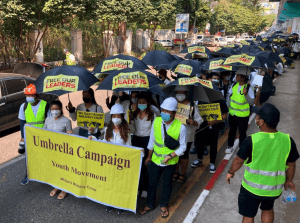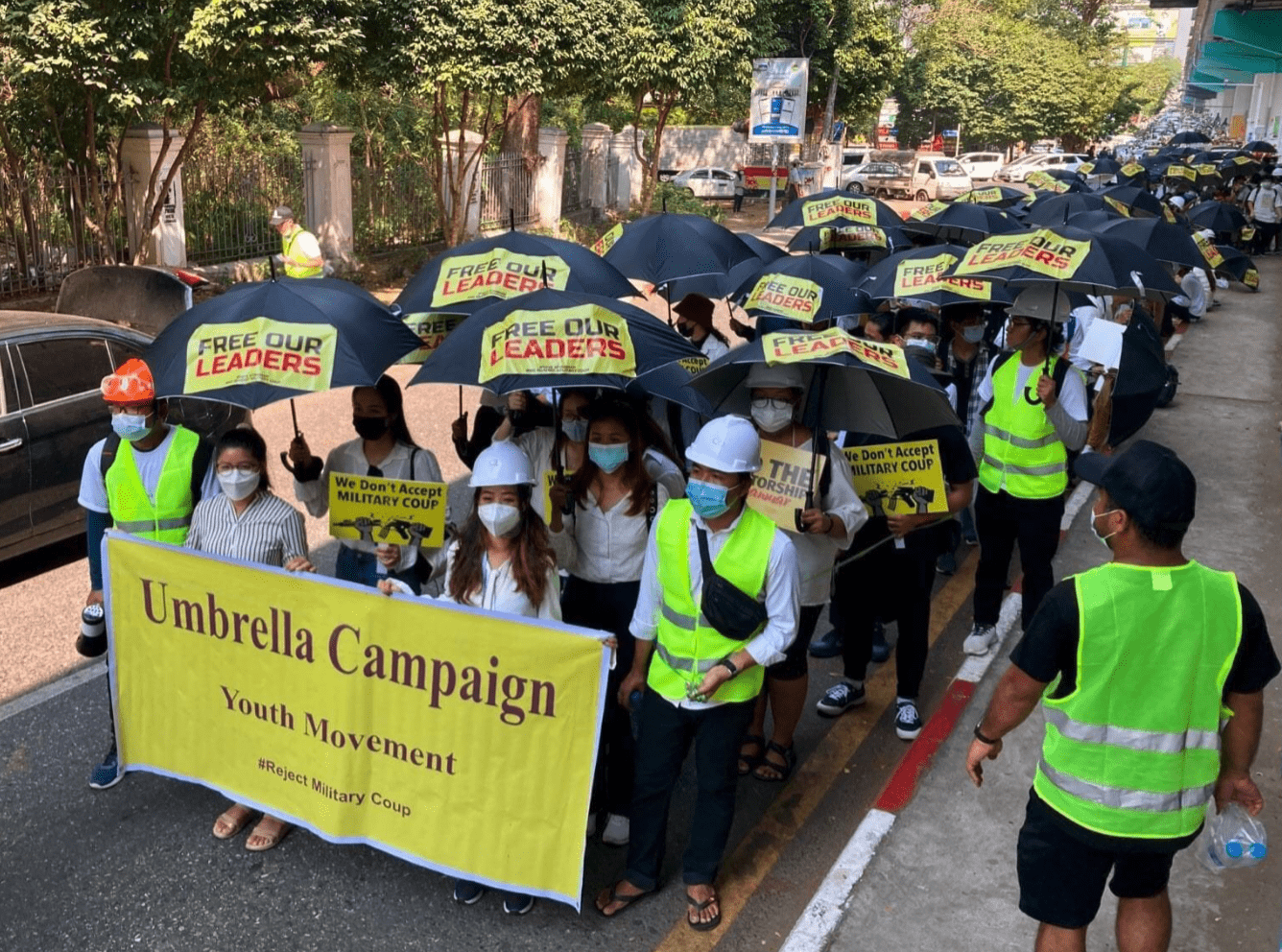
No one living in Myanmar today will ever forget February 1, 2021. That was the day the military staged a coup to remove the hugely popular National League of Democracy from office. What made this so shocking was the fact that the military already had constitutionally-protected positions in the executive and legislative branches. However, the Commander-in-Chief had tired of sharing governance with civilian politicians who hoped to reduce the military’s role in politics.
The public was outraged. They had risked covid exposure to vote in the November 2020 elections and had given the National League for Democracy a second landslide victory. Ever since February 1st, citizens have taken to the streets to protest the coup in ever more inventive ways, while a large proportion of civil servants have walked off the job in an effort to shut down the government. People are boycotting products from military-owned companies and are urging the international community to cut business and financial ties with military-run entities. While this may also cause economic pain for civilians, they feel such measures are necessary in the short term to undermine military rule.
As someone who has spent the last 25 years as both a scholar and development practitioner focused on Myanmar, I have been following recent events with mixed emotions. The way the movement has brought people together across different ethnicities, classes, and gender identities has been breathtaking. They have used art, music, fashion, and humor to make their demonstrations a celebration of who they are and what they stand for. Yet, the military has a long history of crushing its opponents through brutal means, and the number of people detained, injured, and killed is rising day by day.
I am currently completing a book on the last decade of political, economic and social reforms in Myanmar. After nearly 50 years of military rule, the 2010s were a period in which elected politicians made genuine efforts to meet their needs. Every one of the over 100 interviews I did with Myanmar citizens in recent years was memorable as people reflected on the opportunities that had opened up. However, one interview I think of often was with an elected parliamentarian who said villagers in his constituency were incredulous when the government began providing money for local-determined development initiatives. In the past, they had only experienced an extractive and punitive government, focused on maintaining its power rather than enhancing the well-being of citizens.
Similarly, before 2010, the regime had purposely restricted the supply of Sim cards to their inner circle so that the rest of the population could not use mobile phones to organize against military rule. In the 2010s, the civilian government liberalized telecommunications and people took to social media droves. As in other countries, this had its positives and negatives. The military and ultranationalists aligned with them used Facebook to spread hate speech and whip up fear of non-Buddhists and groups they labelled as non-citizens. Still, widespread connectivity enabled businesses to flourish and people to connect in ways that had previously been impossible.
Myanmar’s journey has been particularly difficult. Yet development, whether at the local, national, or global level, is inevitably full of challenges, both anticipated and unanticipated. Over the long term, with vision, persistence, and partnership, obstacles can be overcome and aspirations realized. I hope that soon Myanmar will be back on track and that peace, inclusive governance, and equitable development lie ahead.
—Dr. Christina Fink is a professor of practice of international affairs in the Elliott School’s International Development Studies M.A. program.

